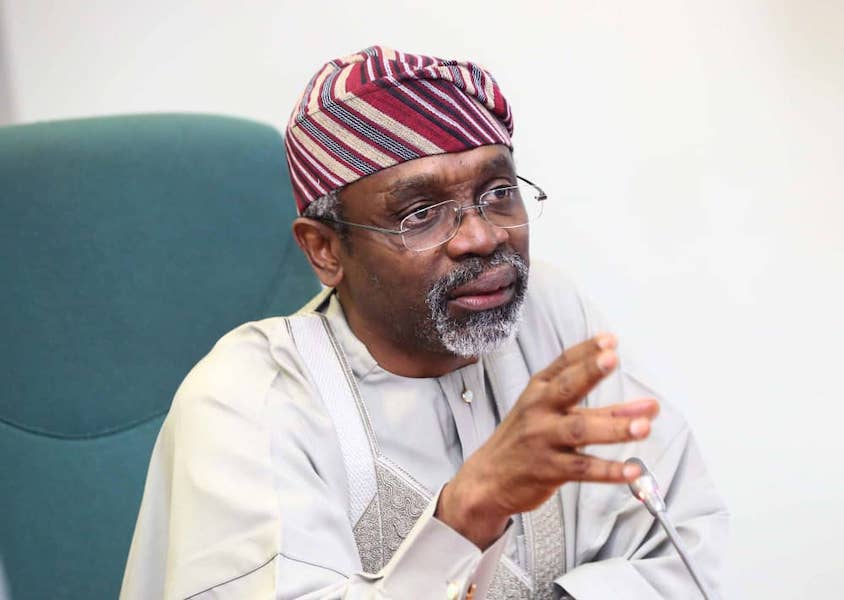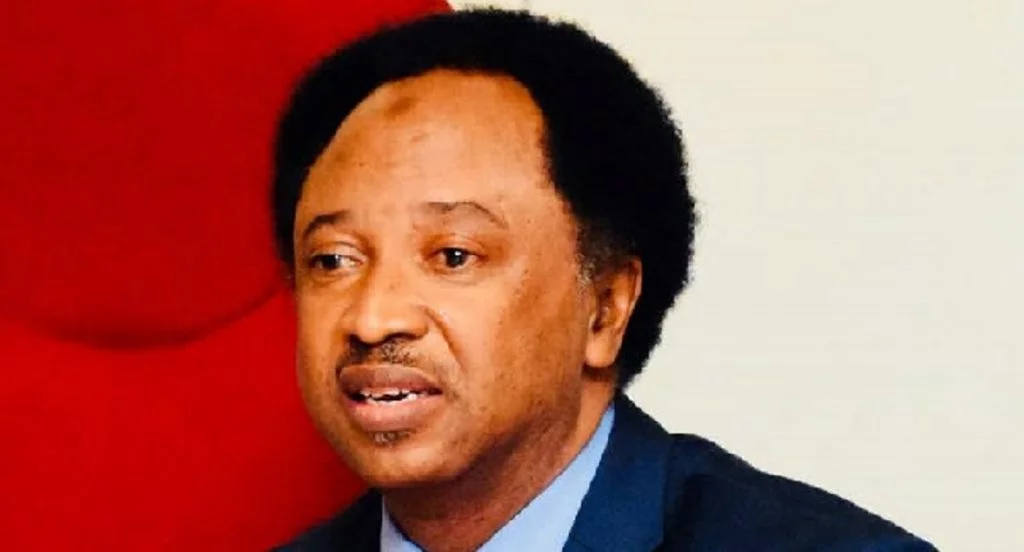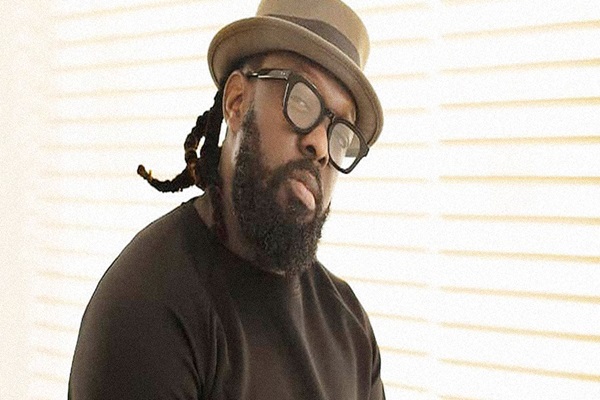News
Gbajabiamila Reveals Those Behind Naira, Fuel Scarcity

The Speaker of the House of Representatives, Mr Femi Gbajabiamila, has ascribed the current fuel and naira scarcity to the activities of saboteurs.
He said this in Lagos on Tuesday, during the launching of the second phase of a transport initiative called “Gbaja ride.”
The initiative was designed to empower his Surulere constituents.
The News Agency of Nigeria reports that 35 low-fare buses that would ply different routes in Surulere and environs were inaugurated.
READ ALSO: Another Protest Rocks Ogun Over Scarcity Of New Naira Notes [VIDEO]
Gbajabiamila noted that the incessant fuel and naira scarcity of naira notes were carefully orchestrated by some elements to slow down the successes of President Muhammadu Buhari.
Speaking on the “Gbaja ride,” he disclosed that the first edition started in June 2018 with 30 new buses,160 motorcycles and 25 tricycles.
He said the second phase had been better structured to offer better bus services to the people of Surulere at very low fares.
Gbajabiamila said the new 35 buses would be run in partnership with members of Lagos State Park and Garages Administrators.
He, however, said the buses would offer free rides to teachers, students and residents who are above 70 years.
He explained that the initiative was one of his many interventions geared towards improving the lot of the people of the constituency.
He also said the House of Representatives was working hard to rescue citizens from the current hardships towards bringing relief as soon as possible.
“As your representative and speaker, I have a good understanding of the current hardships and discomfort being faced by many Nigerians, without exception to my constituents.
“The lower legislative chamber under my leadership has been on the side of the people, working tirelessly to rescue them from these difficulties.
“I am glad that the judiciary has also confirmed our position on the implementation of the policy of naira redesign.”
The speaker also alleged that some elements had created a crisis around the policy just to stop the All Progressives Congress presidential candidate, Bola Tinubu, from winning the presidential election.
He said, “Nobody can convince me that it is not a plot to stop Asiwaju from becoming the president of this country.
READ ALSO: Pictorial: Gridlock As Protest Resumes In Ibadan Over Fuel, Naira Scarcity
“But I am glad that our God is a wonderful being, as the plot these people sat together to hatch he has intervened.
“I have followed the campaign team to the East, North and everywhere with Asiwaju and I doff my hat for Nigerians.”
Earlier, the Chairman of Surulere Local Government, Mr Sulaiman Yusuf, commended Gbajabiamila for the initiative.
He said the scheme was another proof that the Speaker was committed to the wellbeing of the people of his constituency .
“This is another proof that the speaker cares. He has done so much for the people of Surulere and we are so proud of him,” he said.
NAN
News
Trump’s Airstrikes: Halt Military Cooperation With US Immediately – Sheikh Gumi Tells Tinubu Govt

Islamic cleric, Sheikh Ahmad Gumi has called on the Federal Government to immediately halt all military cooperation with the United States following reported US airstrikes.
Gumi warned that American involvement could worsen Nigeria’s security challenges and undermine national sovereignty.
Gumi made the call in a statement posted on his Facebook page on Friday.
He said while Islam permits the fight against terrorism, such actions should only be carried out by what he described as “clean hands,” arguing that the United States lacks the moral authority to lead such efforts because of its global military record.
READ ALSO:US Dept Of War Shares Video Of Air Strikes In Nigeria
According to the cleric, Nigeria made a mistake by allowing foreign powers to play a role in its counterterrorism operations, insisting that “terrorists do not truly fight terrorists” and that such interventions often result in civilian casualties and hidden political motives.
Gumi warned that allowing Nigeria to become a theatre of war would attract anti-US forces into the country, further destabilising it.
He also cautioned that US involvement, particularly under claims of protecting Christians, could polarise the country along religious lines.
READ ALSO:Trump To Attend FIFA World Cup Finals Draw On Friday
The cleric further argued that airstrikes alone cannot defeat terrorism, stressing that effective counterterrorism requires strong ground operations, which he said Nigeria has enough personnel to carry out if properly organised.
“This is the mistake Nigeria has made. Terrorists don’t fight terrorists in truth; they may only kill innocent people and have ulterior motives behind the drama of fighting ‘terror’.
“As a principle, no nation should allow its land to be a theater of war. And no nation should allow its neighbors to be their enemies.
“If Nigeria wants military assistance, China, Turkey, and Pakistan can do the job effectively,” part of his statement reads.
News
Shehu Sani Reacts To Trump’s Military Strikes In Nigeria

Former lawmaker, senator Shehu Sani, has reacted to reports of United States military strikes on terrorist targets in Nigeria’s North-West, saying foreign powers cannot permanently handle the country’s security challenges.
Sani made the remarks on Friday via his X handle while responding to a post by the United States Africa Command, AFRICOM, which indicated that the strikes were carried out in coordination with Nigerian authorities.
According to him, if the reported strikes were indeed a joint operation with Nigerian security agencies, then such action was justifiable, given the threat posed by terrorist groups in the region.
READ ALSO:US Dept Of War Shares Video Of Air Strikes In Nigeria
He described terrorists operating in parts of northern Nigeria as “cancerous cells,” stressing that they survive through violence and should be confronted decisively.
Sani also dismissed narratives suggesting that terrorist attacks target only one religious group, describing such claims as false and misleading.
He said: “If actually, the military strikes against the terrorists targets in the North Western part of Nigeria were a joint operation with the ‘Nigerian Authorities’ as posted by the US AFRICOM on their verified X handle, then it’s a conscionable action.
READ ALSO:JUST IN: US Forces Bomb Terrorists Camps In Nigeria
“Terrorists have become cancerous cells in our part of the country.They live by the sword.The narrative that the evil terrorists only targets one faith, remains absolutely false and misleading.
“Again, the ultimate security and peace in our country lies with ourselves and not with the US or any foreign power. They can complimentarily or unilaterally strike, but they can’t eternally fight our battles.”
News
UKWU! Timaya Falls On Stage While Trying To Lift Plus-sized Woman During Performance [VIDEO]

Nigerian singer, Timaya fell on stage while trying to lift a plus-sized lady during performance.
The incident occurred during his ‘Ukwu’ performance at the Gbaramatu Christmas Carnival in Delta State.
READ ALSO:Saboteurs Against Presidential Amnesty Reforms – General Ndiomu
Timaya in a now trending video on social media collapsed after the plus-sized woman jumped on him midday into his performance.
The singer later got up and continued his performance amid cheers from the crowd.
Watch video here
https://x.com/hypetribeng/status/2004263337572684157?s=20

 News4 days ago
News4 days agoPHOTOS: New Era In Furupagha-Ebijaw As Okpururu 1 Receives Staff Of Office

 News3 days ago
News3 days agoUBTH CMD Marks 120 Days In Office, Expresses Commitment To Providing Conducive Working Environment

 News4 days ago
News4 days agoOPINION: Gumi And His Terrorists

 News3 days ago
News3 days agoFIRS Confirms NIN As Tax ID

 News4 days ago
News4 days agoFG Declares Public Holidays For Christmas, New Year Celebrations

 Metro3 days ago
Metro3 days agoFintiri Pardons Man Sentenced To Death For ‘Killing Herdsman In Self-defence’, Others

 News4 days ago
News4 days agoOPINION: Christmas And A Motherless Child

 News3 days ago
News3 days agoOPINION: My Man Of The Season

 News2 days ago
News2 days agoJUST IN: Kano Lawmaker, Sarki Aliyu Daneji, Dies Hours After Colleague’s Passing

 News3 days ago
News3 days agoKWAM 1 Withdraws From Awujale Race, Ends Court Challenge




























